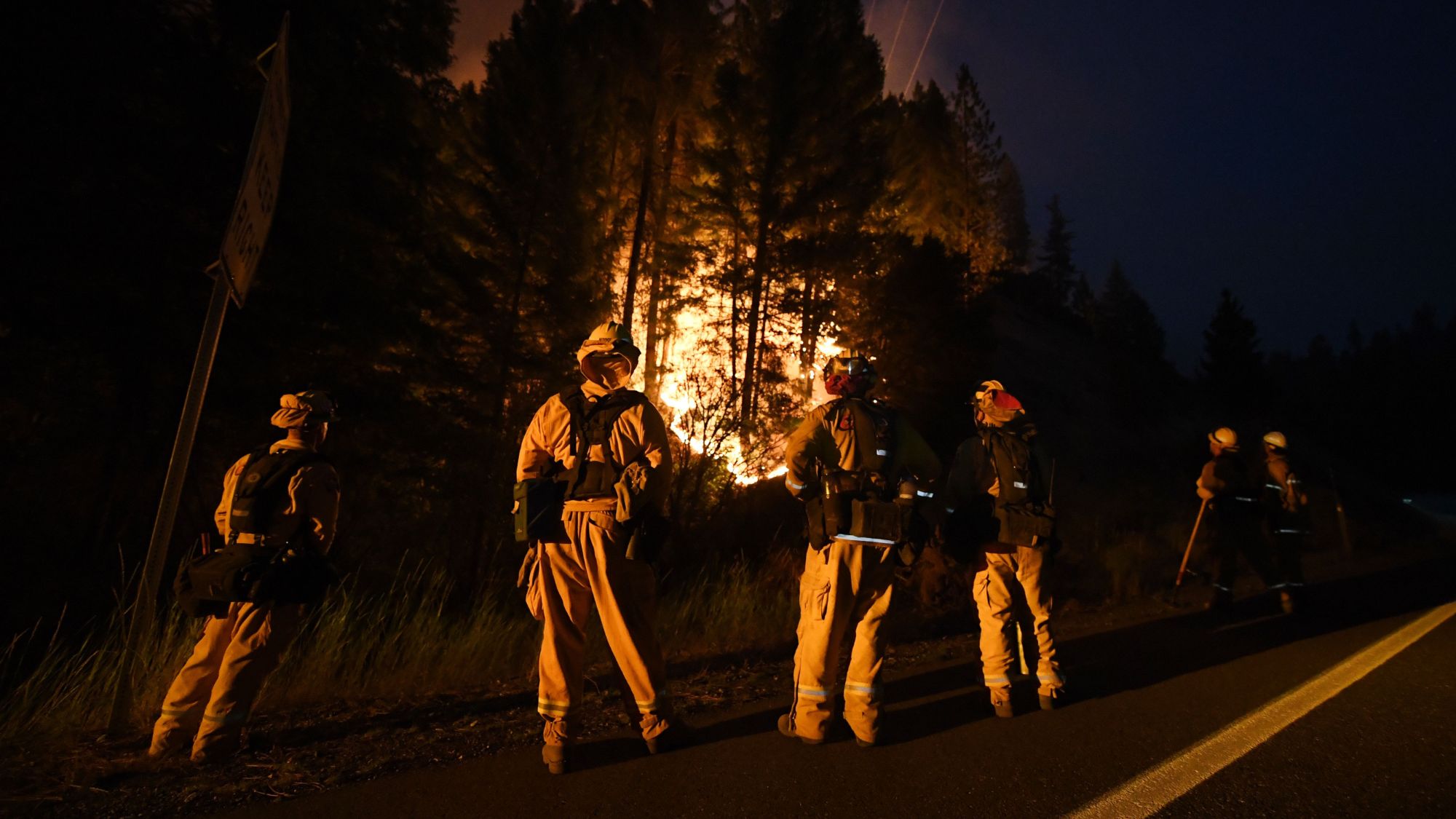The economic cost of the wildfire season
Wildfires are exacting an 'eye-popping' financial toll for communities in fire-prone areas and beyond

A free daily email with the biggest news stories of the day – and the best features from TheWeek.com
You are now subscribed
Your newsletter sign-up was successful
With deadly blazes sweeping across Brazil, and Greece braced for high-risk weather, wildfire season is in full swing. Typically lasting from June until late September, this period not only poses a serious threat to human and animal life, but also wreaks devastating damage on homes, landscapes, and livelihoods. And the economic cost – for affected countries and individuals – has proven enormous.
How much do wildfires cost?
Bloomberg reported that wildfires cost Europe €4.1 billion (£3.46 billion) in damages last year, with Greece, Spain, and Italy facing the majority of the impact. And in Hawaii, state government officials spent more than $410 million (£310 million) responding to the aftermath of Maui's 2023 wildfires, according to the Honolulu Civil Beat.
When you include the long-term impacts of wildfires, those costs spiral. The wildfires that raged across Sicily in 2023 caused more than €60 million (£50.7 million) of infrastructure damage in a matter of days, said The Guardian, but "damage to agriculture caused by fires and the intense heatwave amounted to about €200 million".
The Week
Escape your echo chamber. Get the facts behind the news, plus analysis from multiple perspectives.

Sign up for The Week's Free Newsletters
From our morning news briefing to a weekly Good News Newsletter, get the best of The Week delivered directly to your inbox.
From our morning news briefing to a weekly Good News Newsletter, get the best of The Week delivered directly to your inbox.
The US Senate Joint Economic Committee released a report last year which suggests that "climate change-fuelled wildfires" cost the US economy up to $893 billion (£675.5 billion) each year, a "shocking figure that is more than double what previous government reports have estimated", said CNN.
Senator Martin Heinrich, chair of the committee, told CNN that these numbers are "scary", and a threat to everyone – even those who live in areas not prone to fires. Heinrich said that he "wanted to look at the cascading economic costs from wildfires" and "make a case for why lawmakers and officials should spend money proactively on resilience measures".
"There's always been this frame from some policymakers that we can't afford to do anything about climate change," Heinrich told CNN. "And the reality is, the real costs to our economy are to not do anything about it, and let this run away to an even worse outcome down the road."
How do wildfires impact housing?
Beyond the evident costs of rebuilding homes and businesses that have been damaged or destroyed, and sheltering displaced people, wildfires also impact residents in less obvious ways.
A free daily email with the biggest news stories of the day – and the best features from TheWeek.com
Take California, for example – with wildfire season wreaking havoc year after year, home insurance premiums have rocketed, by thousands of dollars in some cases, said the San Francisco Chronicle. Some insurance companies operating in the state have raised rates, with an S&P Global analysis showing a 43% increase in private home insurance rates from 2018 to 2023, while others have abandoned California altogether, said the Chronicle. Wildfire-related costs "are making an already expensive state even less affordable, including for those who live far from wildfire zones".
The problem extends beyond insurance rates. "Homeowners who have had to take on a higher insurance premium may have a tougher time selling their home", and must "factor higher premiums into their monthly payments, reducing the amount of home they can afford", said CNN.
"On a per-person basis, the costs are eye-popping," said the Chronicle.
What are the health-related costs?
"When wildfires rage, the immediate threat is obvious – but smoke from the fires actually kills far more people than the flames," said Fast Company. "As fires become more frequent, that smoke is leading to a public health crisis."
A study published in Science Advances found that wildfire smoke alone "likely contributed to more than 52,000 premature deaths" in California from 2008 to 2018. Those deaths had an "economic impact" of more than $430 billion (£326 billion), said the publication.
Wildfire damage has also impacted drinking water. In 2022, for example, a wildfire in northern New Mexico left behind "sludgy ash and charred soil" that contaminated the region's Gallinas River, "threatening the drinking water supply for the city of Las Vegas", said CNN. According to the Senate report led by Heinrich, the watershed costs incurred were "very substantial".
"Communities like Mora and Las Vegas that have had to figure out how to provide clean drinking water to their constituents post-fire, you realise how expensive clean water really is and how infrastructure dependent it is," Heinrich told CNN.